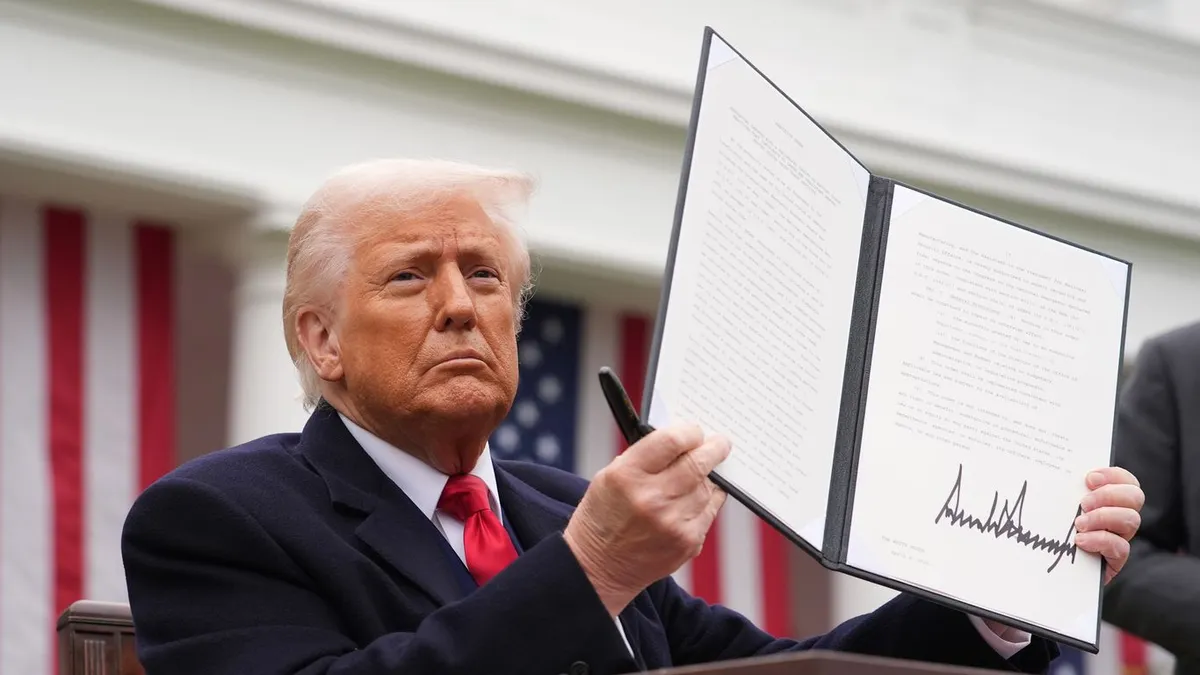
On Monday, the U.S. government initiated a series of new tariffs affecting multiple countries, marking a significant shift in the ongoing trade war under President Trump. The administration paired these new rates with an explicit warning that they could change at any moment. This development is crucial as it signals an abrupt re-escalation of the trade tensions that had previously shown signs of stabilization.
For businesses that have been seeking certainty in their operations, this sudden imposition of tariffs disrupts the relative calm that had been experienced recently. The new tariffs inject additional risks into financial markets, which had largely adjusted to a post-tariff environment. The uncertainty surrounding these tariffs could lead to instability, affecting both domestic and international trade dynamics.
President Trump took to Truth Social to post copies of the tariff letters, starting with South Korea and Japan, both of which are now facing a hefty 25% tariff effective from August 1. These rates are similar to those initially announced on April 2, during Liberation Day, but were paused for 90 days. In addition to South Korea and Japan, other countries affected include Myanmar (40% tariff), Laos (40%), Thailand (36%), Cambodia (36%), Serbia (35%), Bangladesh (35%), Indonesia (32%), Bosnia & Herzegovina (30%), South Africa (30%), Kazakhstan (25%), Malaysia (25%), and Tunisia (25%). Notably, many of these rates are either slightly lower than the April announcement or unchanged, with Malaysia seeing a 1 percentage point increase. Cambodia, however, benefited from a significant reduction, with its tariff dropping by 13 percentage points from the original target.
The letters sent to leaders of South Korea and Japan included a statement inviting these nations to eliminate their own tariffs and trade barriers to potentially adjust the new tariffs. The message was clear: if countries wish to engage more freely with the United States, they must be willing to reconsider their own trade policies.
President Trump has also warned that any retaliatory action from these countries could lead to even higher tariffs. The letter addressed to Japan explicitly states that if Japan raises its tariffs, the U.S. will add the same amount to its existing 25% charge. This language was echoed in communications to South Korea and other nations, highlighting the administration's tough stance on trade negotiations.
The announcement of these tariffs had an immediate impact on the financial markets. Initially, stocks fell sharply, reaching session lows, before rebounding slightly. Ultimately, the S&P 500 dropped by 0.8%, while the small-cap Russell 2000, which includes companies more susceptible to tariff costs, fell by 1.6%. This volatility illustrates the apprehension that traders feel in light of the renewed trade uncertainties.
In summary, the U.S.'s recent decision to impose new tariffs is a critical moment in the ongoing trade war, with implications for businesses and financial markets alike. As the situation develops, both domestic and international stakeholders will be closely monitoring the potential changes to these tariffs and their broader economic impact.